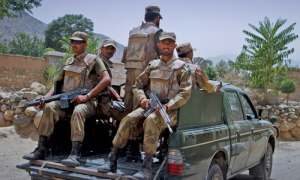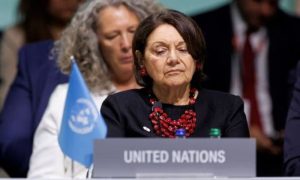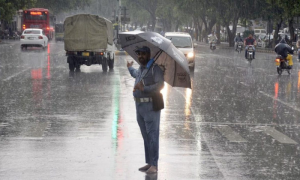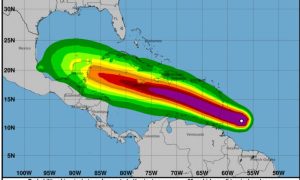Perpetuating instability in Afghanistan remains a point of concern for regional stakeholders. Definitely, neighboring countries of Afghanistan are in a state of constant discomfort amid unsettled issues awaiting a rational response from Kabul. Much of the concerns revolve around regional security, however, the brewing humanitarian crisis has also drawn the attention of unbiased international keen observers. This phenomenon emerged more intensely after the arrival of the Taliban in the power corridors of Kabul. It would not be an overstatement that Afghanistan is struggling for stability on both external and internal fronts without any viable plan and visible intentions. The instability of Afghanistan can be easily attributed to the foreign powers who fought their ugly wars far away from their respective heartlands. However, such an oversimplified fixation of responsibility might not serve the purpose of finding the appropriate remedial course. The tribal nature of Afghan society provided enough exploitable grounds for invading forces. Both Russia and America contested each other in the Afghan arena with the support of local partners. Ironically, the polarized Afghan groups had been instrumental in the destruction and marginalization of each other at the behest of foreign exploiters. Even after the formal withdrawal of erstwhile USSR forces, divided groups could not unite to keep Afghanistan peaceful. The process of Afghanistan’s transition to an unstable state is spread over decades. The comparatively peaceful and stable era in Afghanistan came for a very short duration under the Taliban regime led by Mullah Omer. This era eventually ended with the disastrous beginning of foreign Military campaigns in the late 90s. After 9/11, US and NATO forces came to dismantle the al Qaeda network in Afghanistan. What happened in Afghanistan during the longest military campaign of American history, is neither appreciable nor easy to comprehend. What did US and NATO members achieve from this prolonged adventure other than pushing Afghanistan deeper in quagmire of instability? This intriguing aspect is obvious that today’s Afghanistan is more deteriorated, unstable, ill-governed and polarized. The whole campaign is still surrounded by shadowy layers of dubiousness. How strange it appears now that the most powerful military machinery of US-NATO started the campaign with the dislodgement Of Taliban rule in Afghanistan. After spending more than 2 decades, when US forces finished the withdrawal from Afghanistan, Kabul again went swiftly under the control of the Afghan Taliban. Reportedly all brands of terrorist organizations are operating with full impurity on Afghan soil. The nexus between Afghan Taliban and Al-Qaeda is not a fiction but rather a bitter reality frequently hammered by none other than US state officials. This speaks volumes about the dubious nature of the military campaign run in Afghanistan by the US and NATO. According to numerous official statements pouring in from the US, UN and CENTCOM; all brands of terrorist organizations are very much intact in Afghanistan. This undeniable fact merits introspection of the intended objectives of mission Afghanistan set by the US government. Presently, the ruling regime of the Taliban is being called the interim Afghan government. Since this self-style unelected setup took over Kabul after the sudden collapse of Ashraf Ghani’s government therefore none of the country has recognized it diplomatically as a legitimate ruling body. Despite non-recognition, well-wishers of Afghanistan are maintaining requisite diplomatic engagements with the interim government for the sake of the Afghan masses. Pakistan has remained at the forefront and continued advocacy to overcome the humanitarian crisis brewing persistently in Afghanistan. Much of Afghanistan’s future depends upon the actions of the Taliban-led interim setup and the major rival groups. Neighboring countries especially Iran and Pakistan rightly expect a responsible response from Kabul on the sensitive issues linked to fragile regional security. Cross-border terrorism and refugee influx are the most soring issues in the long list of unsettled concerns. On the internal front, the interim government is striving to establish a hard grip on society without showing requisite flexibility towards dissenting quarters. This harsh approach in a war-torn country has drawn enormous criticism from human rights bodies. Female specific restrictions imposed immediately after the 2021 takeover have refreshed the bitter memories of the Western world on alleged human rights violations committed by the Afghan Taliban during previous rule on Afghanistan. Repeated objections from Pakistan on the active presence of banned TTP and its splinter groups in Afghanistan have so far fallen on deaf ears in Kabul. The expulsion of illegal immigrants from Iran and Pakistan is gaining momentum. Reportedly, Iran has so far expelled approximately 1.3 million illegal Afghan immigrants. The interim government of the Taliban should brainstorm deliberately to restore stability on the internal front with a holistic rehashed approach. An unelected and unrecognized regime cannot tackle the complicated issues of the war-torn society of Afghanistan. Fallouts of ill-governed Afghanistan are very destructive for next door neighbors like Pakistan and Iran. The interim Afghan government should act swiftly and maturely for the collective good of the region. Definitely, Afghanistan deserves better than what Taliban are delivering at the moment.























